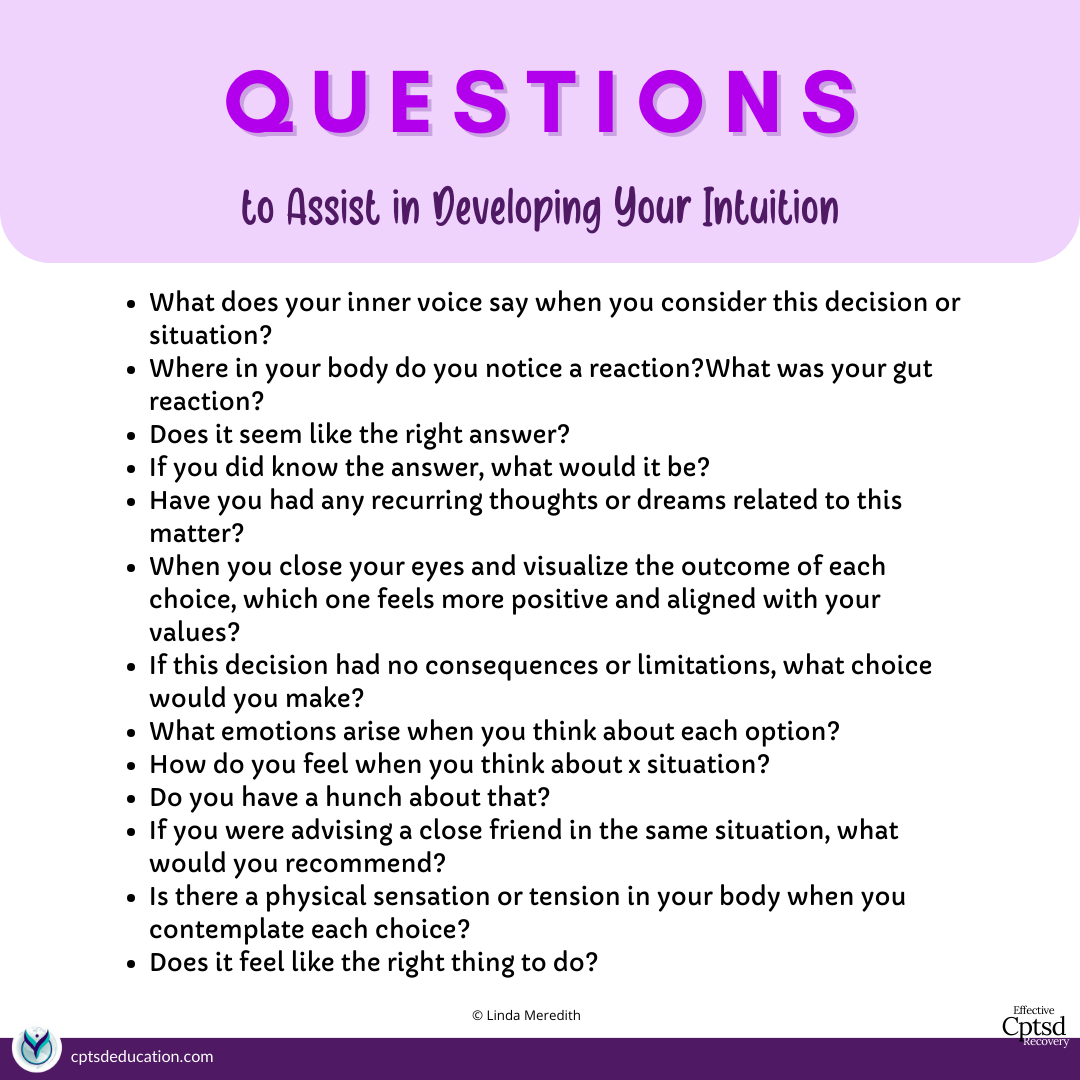Living with Complex Post-Traumatic Stress Disorder (CPTSD) can sometimes cloud our connection with our intuition. Questions can be our guiding light on this path to self-discovery.
Here's why:
Clarity Amidst Chaos: CPTSD can create mental chaos. Asking questions helps sift through the noise and find the quiet voice of intuition within.
Self-Validation: Questions empower us to validate our feelings and experiences. They say, 'Your intuition matters, and it's worth exploring.
Identifying Patterns: Questions unveil recurring patterns in our thoughts and behaviors, allowing us to make more informed, intuitive choices.
Growth & Healing: By questioning, we embark on a journey of self-growth and healing. Each question is a step toward a brighter, intuitive self.
Empowerment: Questions are tools of empowerment. They remind us that we have the capacity to understand, heal, and trust ourselves.
🌟 Embrace questions as your allies on your intuitive journey with CPTSD. 🌟
How CPtsd blocks our intuition
Complex Post-Traumatic Stress Disorder (CPTSD) can create barriers to accessing and trusting our intuition in various ways:
Hyper-Vigilance: CPTSD often leads to a heightened state of alertness and hypervigilance as a survival mechanism. In this state, it's challenging to relax and tune into your intuition, as your focus is primarily on perceived threats in your environment.
Distrust of Self: Individuals with CPTSD may struggle with low self-esteem and self-doubt due to past traumas. This lack of self-trust can make it difficult to believe in one's intuitive insights.
Emotional Dysregulation: CPTSD can lead to emotional dysregulation, where intense emotions can overwhelm your ability to think clearly. In such moments, it's challenging to discern between emotional reactions and genuine intuitive nudges.
Hypervigilance to Others: CPTSD survivors often become hyper-aware of the emotions and intentions of others to navigate potentially dangerous situations. This hyper-focus on external cues can drown out your internal intuitive signals.
Fear of Vulnerability: Trusting your intuition often requires vulnerability and openness to your inner feelings and thoughts. For CPTSD survivors who've experienced betrayal and harm, this vulnerability can be terrifying.
Difficulty in Grounding: Many CPTSD symptoms, such as dissociation or feeling disconnected from your body, can hinder the ability to ground yourself and access your intuition, which often arises from a deep connection with your physical and emotional sensations.
Overthinking and Rumination: CPTSD can lead to persistent overthinking and rumination about past traumas. This mental clutter can drown out intuitive insights, as the mind is preoccupied with past events.
Overcoming these barriers often involves a combination of trauma-informed therapy, self-compassion practices, mindfulness techniques, and patience. It's essential to work with a qualified therapist who understands the complexities of CPTSD to help you gradually reconnect with your intuition and regain a sense of self-trust.



